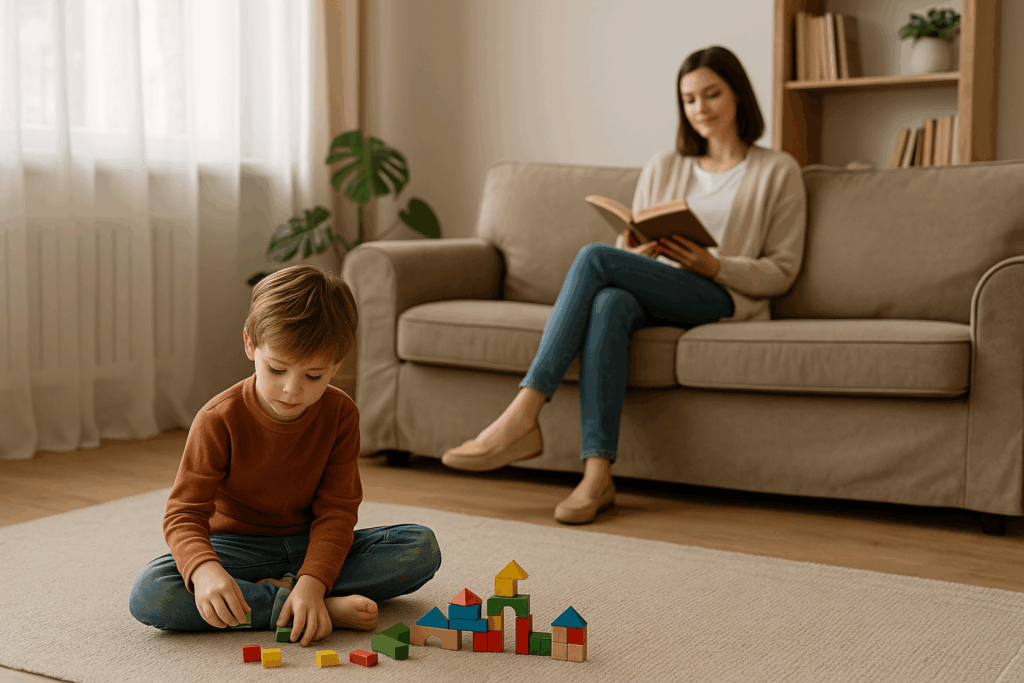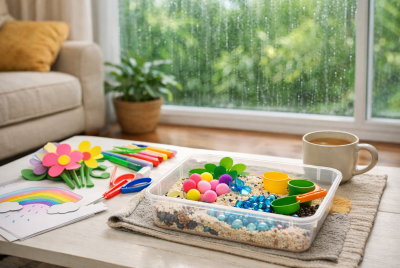Co Parenting with a Narcissist: Practical Tips That Actually Help
We may earn a commission for purchases made using our links. Please see our disclosure to learn more.
Co parenting with a narcissist can feel like walking through a storm—you never know when the next outburst or manipulation tactic will hit. But here’s the truth: you can still raise a well-adjusted child while protecting your own sanity. Whether you’re newly separated or have been dealing with a toxic ex for years, understanding how to manage the dynamic is key.
Let’s break down realistic, research-informed ways to navigate this difficult parenting path—without losing your peace.
Understanding Narcissistic Behavior in Co-Parenting
A narcissist is often charming on the surface but deeply insecure underneath. When it comes to parenting, they may use guilt, gaslighting, blame-shifting, or manipulation to maintain control. They often view the co-parenting relationship as a battleground rather than a partnership for the child’s benefit.
They might:
- Undermine your parenting decisions
- Ignore boundaries
- Use the child as a pawn
- Project their own faults onto you
Recognizing these patterns is the first step in protecting yourself and your child.

How Narcissism Affects Co-Parenting Dynamics
Narcissists tend to create chaos. Co-parenting schedules may become unpredictable. Communication can turn into power struggles. Decisions about your child may be met with resistance just for the sake of argument.
Over time, this tension can:
- Impact the child’s emotional health
- Cause anxiety or behavioral issues
- Lead to parental alienation tactics
Understanding this can help you shift your focus from “winning” arguments to protecting your child and preserving your energy.
Setting Boundaries That Actually Stick
Boundaries are your best defense.
Instead of arguing every point, create a structured agreement—preferably in writing. Be firm but calm. Don’t explain or justify every decision you make; narcissists often twist explanations into arguments.
Some examples of healthy boundaries:
- Only communicate through email or co-parenting apps
- No last-minute schedule changes without written agreement
- Set rules about what’s discussed in front of the child
Consistency is more powerful than confrontation.
Communication Strategies That Reduce Drama
You can’t control how a narcissist communicates, but you can control your responses. Aim to be clear, brief, and unemotional.
Use the BIFF Method:
Brief, Informative, Friendly, Firm.
For example:
“Thank you for your message. I’ll be picking up [Child’s Name] at 4 p.m. on Friday as agreed.”
Avoid sarcasm, lengthy explanations, or accusations—they’ll only fuel the fire.
Protecting Your Child’s Emotional Well-Being
Your child may feel caught in the middle. The narcissistic parent may talk badly about you or try to win affection through gifts or manipulation.
You can counteract this by:
- Validating your child’s feelings
- Encouraging open, safe conversations
- Never speaking poorly about the other parent
- Modeling emotional regulation
Let your home be their emotional safe zone—calm, respectful, and predictable.
When to Document Everything—and Why
Documentation is essential when co parenting with a narcissist, especially if legal action is ever required.
What to document:
- Missed visitations
- Hostile messages
- Rule violations
- Any concerning behavior toward the child
Use co-parenting apps or written logs that create time-stamped records admissible in court.
Self-Care for Your Mental Health
Living under constant stress can wear you down. You must prioritize your well-being—because you can’t pour from an empty cup.
Here’s how:
- Talk to a therapist or join a support group
- Keep a journal to process frustration
- Maintain hobbies that energize you
- Avoid venting to your child
If you’re looking for relaxing and mindful activities, check out these therapeutic spring craft projects for parents and kids. Not only do they help unwind, but they also encourage quality bonding time that nurtures emotional resilience.
Self-care isn’t a luxury. It’s your anchor in this storm.

🛒 Recommended Products for Co-Parenting with a Narcissist
Here are practical tools that support organization, safety, and emotional well-being when dealing with a high-conflict co-parent.
1. Child Custody Journal
Keep detailed records of visitation, expenses, and incidents.
View product
2. Digital Voice Recorder
Ideal for documenting verbal agreements or questionable interactions.
View product
3. Home Security Camera
A security camera can provide peace of mind and video evidence if needed.
View product
4. Document Organizer
Perfect for keeping custody agreements, emails, and court documents sorted.
View product
5. Stress Relief Tools
Stay grounded with tools that support your mental wellness.
- Essential Oil Diffuser: View product
- Thick Yoga Mat: View product
🔬 Research Insights on Co-Parenting with a Narcissist
Scientific research supports what many parents already know—narcissistic dynamics make co-parenting extremely difficult and emotionally draining.
Parallel Parenting: A Safer Alternative to Traditional Co-Parenting
Parallel parenting for high-conflict relationships is an approach endorsed by experts as an alternative to traditional co-parenting when dealing with a narcissist. It reduces conflict and protects children by minimizing interactions between parents.
Long-Term Effects of Narcissistic Parenting on Children
A research study on narcissistic parenting found that children raised by narcissistic parents often suffer from emotional neglect, low self-worth, and long-term psychological effects. This highlights the importance of being the emotionally safe parent your child can rely on.
Final Thoughts
Co parenting with a narcissist isn’t just tough—it’s exhausting. But by focusing on structure, boundaries, and your child’s emotional health, you can rise above the chaos. Remember: this journey is about creating stability for your child, not satisfying a toxic ex.
Protect your peace. Stay grounded. And trust that consistency always wins in the long run.
FAQs
Q1: What is the best communication method when co parenting with a narcissist?
Use written, time-stamped communication. Keep it short, factual, and emotion-free.
Q2: Should I try to co-parent or parallel parent?
If cooperation is impossible, parallel parenting is usually safer and more effective.
Q3: How do I help my child deal with the narcissistic parent?
Provide emotional stability, validate their feelings, and maintain open, non-judgmental communication.
Q4: Can I go to court to change custody if narcissistic behavior continues?
Yes. With documentation, you can request a review. A family lawyer can help.
Q5: Is it okay to take a break from communication?
Absolutely. As long as your parenting plan allows, protecting your peace is valid.




